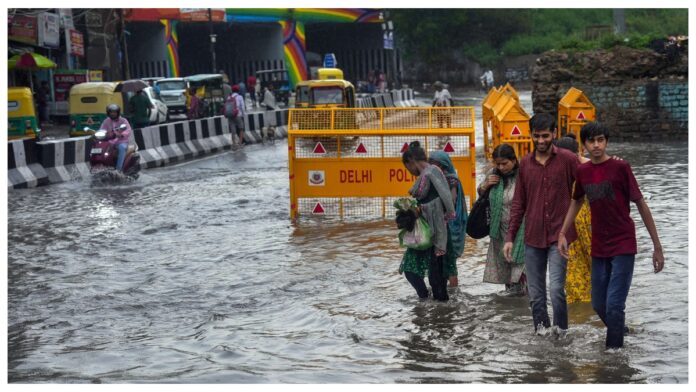Important Update: DU Exam Date 2023 Revealed for Postponed Exams, Commencing on July 26
Due to the floodlike situation in Delhi, Delhi University has rescheduled the second-year semester exams for regular, School of Open Learning, and Non-Collegiate Women’s Education Board students. The revised exam dates have been issued to accommodate the prevailing circumstances.
Delhi University has announced new and revised exam dates for the upcoming semester exams. The second-year examinations for regular students, as well as those enrolled in the School of Open Learning and Non-Collegiate Women’s Education Board, were postponed due to the flood-like situation that impacted the city of Delhi.
In response to the unforeseen circumstances, the university has now released the rescheduled dates for both theory and practical exams, with the exams set to commence on July 26. Students are now informed about the updated schedule and are expected to be prepared for the upcoming examinations.
The Delhi University theory exams, which were originally scheduled to commence on July 17, have been postponed due to the adverse weather conditions in the city. The increased water level of the Yamuna River, caused by incessant rainfall in the region, led to concerns about the safety and accessibility of the examination centers.
In response to the situation, the university authorities made the decision to postpone the exams to ensure the well-being of the students and avoid any potential risks associated with the flood-like situation. The new dates for the theory exams are yet to be announced, but the university is closely monitoring the weather conditions to determine a suitable time for conducting the examinations.
Students and stakeholders have been advised to stay updated with the official announcements from Delhi University regarding the rescheduling of the exams. The university remains committed to ensuring a conducive and safe environment for the students to undertake their examinations successfully.
The Delhi University (DU) has made significant changes to the schedule of both theory and practical exams due to the prevailing flood-like situation caused by heavy rainfall and rising water levels of the Yamuna River. Originally slated to take place on July 17, 18, and 19, the theory exams have been rescheduled to occur on July 26, August 1, and August 2. Similarly, the practical exams, which were initially planned for July 14, 15, and 16, have been pushed back to August 3, 4, and 5.
The decision to postpone the exams came in response to the adverse weather conditions and the associated concerns for the safety and convenience of the students, staff, and faculty. The increased water level of the Yamuna River, triggered by continuous heavy rains, led to a potential risk of flooding in various parts of Delhi, including the areas where the university examination centers are situated.
In light of this situation, Delhi University took prompt action to ensure the well-being of its students and to maintain the integrity and smooth conduct of the examinations.
Furthermore, the Delhi Disaster Management Authority (DDMA) played a vital role in guiding the university’s decision-making process during this challenging period. Following the recommendations of the DDMA, Delhi University announced its decision to remain closed from July 14 to 16.
This closure allowed the university to mitigate the risks associated with the heavy rainfall and potential flooding, and to focus on the necessary preparations for the revised examination dates.
The university administration is working diligently to inform all students, faculty, and stakeholders about the updated exam schedule. Proper communication channels have been established to ensure that the students are well-informed and have ample time to prepare for their exams. The university remains committed to providing a conducive and safe environment for the students to excel in their studies and successfully complete their examinations.
It is essential for all students to closely follow the official updates and announcements from Delhi University regarding any further changes or developments in the examination schedule. The university is closely monitoring the weather conditions and will continue to make informed decisions based on the prevailing situation in the city.
While the rescheduling of exams may cause inconvenience to some, the safety and well-being of the students and staff remain the top priority for the university. Delhi University acknowledges the efforts and dedication of its students and is committed to supporting them during this challenging time.
By working together and staying informed, the university community can overcome these temporary disruptions and ensure a successful completion of the academic year. The university administration is grateful for the understanding and cooperation of all stakeholders as it navigates through these unprecedented circumstances.
The water level of the Yamuna River in Delhi has surged to unprecedented heights, surpassing previous records. Last week, the water level crossed 207.49 meters, and on July 12, it went further up, reaching 208 meters. As of the latest update, the water level continues to flow above the danger mark of 205.33 meters, raising concerns for the safety and well-being of residents in the affected areas.
During the morning of the same day, at 9 am, the Yamuna water level in Delhi was measured at 205.58 meters. However, within just a few hours, by 12 noon, it rose to 205.80 meters, indicating a significant increase in water levels. The situation remains critical as the water level remains above the danger mark.
On the previous night, Sunday, the water level was recorded at 205.52 meters, which indicates the rapid rise in the river’s water level over a short period. The continuous heavy rainfall in the region has been the primary contributing factor to the escalation of the Yamuna water level.
The local authorities and disaster management agencies are closely monitoring the situation and taking necessary measures to ensure the safety of the residents living along the banks of the Yamuna. Evacuation plans and emergency response strategies are being activated to handle any potential risks or emergencies arising from the flooding.
The situation demands utmost caution from the public, and residents in the affected areas are being urged to exercise extreme care and avoid venturing near the overflowing river. As the water level remains above the danger mark, it is essential for people to stay informed through official updates and adhere to any evacuation orders issued by the authorities.
The rising water level of the Yamuna has also raised concerns about potential damage to properties and infrastructure in the affected regions. The local administration is working closely with disaster response teams to assess and address any damages and provide timely assistance to those in need.
While the situation remains challenging, the efforts of the authorities are focused on minimizing the impact of the flooding and ensuring the safety and well-being of the residents. The continuous monitoring of the water level and weather conditions is crucial in order to anticipate any further developments and take prompt action accordingly.
The residents of Delhi and neighboring regions are urged to remain vigilant and cooperate with the authorities during this critical period. Public safety remains the top priority, and all necessary resources are being mobilized to respond to any emergencies or rescue operations that may arise due to the flooding.
In addition to the local response, the central government is also keeping a close watch on the situation, providing necessary assistance, and coordinating relief efforts with the state authorities. The combined efforts of all stakeholders are essential in mitigating the impact of the floods and facilitating a swift recovery process once the situation stabilizes.
The situation highlights the need for preparedness and resilience in the face of natural disasters and extreme weather events. Adequate measures for flood management and disaster response are critical in safeguarding lives and properties during such calamities. The lessons learned from this experience will serve as valuable insights for future disaster management strategies in the region.
As the situation unfolds, the authorities are committed to providing regular updates and ensuring transparent communication with the public. By staying informed and cooperating with the guidelines issued by the government, the residents can play a crucial role in ensuring their safety and the well-being of their communities during this challenging time.
Delhi University has issued new and revised exam dates for the upcoming semester exams, specifically for the second-year examinations of regular students, School of Open Learning students, and Non-Collegiate Women’s Education Board students. These exams were postponed due to the flood-like situation that impacted Delhi recently.
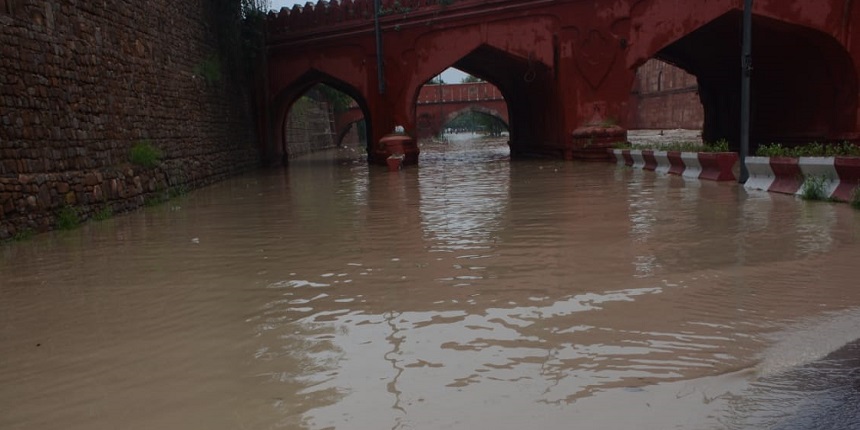
In response to the adverse weather conditions and concerns for the safety of students and staff, the university has rescheduled both theory and practical exams. The revised exams are now set to commence on July 26.
Initially, the Delhi University theory exams were scheduled to begin on July 17, 18, and 19. However, due to the rising water levels of the Yamuna River caused by incessant rainfall in the region, the exams were postponed. The increased water level raised concerns about the safety and accessibility of the examination centers, prompting the university authorities to take necessary action.
The practical exams, which were originally planned for July 14, 15, and 16, have also been rescheduled to take place on August 3, 4, and 5. This decision was made to ensure that students can undertake their examinations in a conducive and safe environment without any potential risks associated with the flood-like situation.
Delhi University has also announced its decision to remain closed from July 14 to 16 as per the guidance of the Delhi Disaster Management Authority (DDMA). The closure aimed to mitigate risks associated with heavy rainfall and potential flooding, allowing the university to focus on preparing for the revised examination dates.
To facilitate smooth conduct and minimize disruptions, the university administration is actively communicating with students, faculty, and stakeholders regarding the updated exam schedule. Students are advised to stay updated with official announcements from Delhi University to be well-prepared for their examinations.
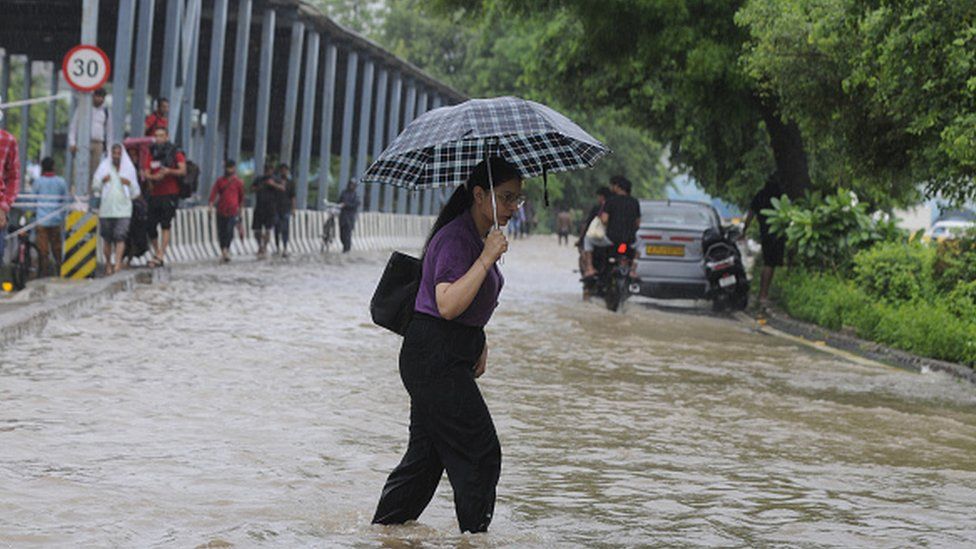
The rescheduling of exams is a precautionary measure taken by the university to prioritize the safety and well-being of students, staff, and faculty. By closely monitoring the weather conditions, the university aims to make informed decisions to ensure a conducive environment for academic activities.
Despite the challenges posed by the flood-like situation, the university remains committed to supporting its students and ensuring the successful completion of the academic year. Collaboration and cooperation among all stakeholders are essential during this challenging period to overcome disruptions and achieve academic goals.
As the situation unfolds, Delhi University will continue to keep the public informed through official updates and transparent communication. The combined efforts of the university administration, disaster management agencies, and the public are vital in effectively managing the situation and ensuring the safety of all individuals in the affected areas.
The water level of the Yamuna River in Delhi has surged to unprecedented heights, surpassing previous records. Last week, the water level crossed 207.49 meters, and on July 12, it went further up, reaching 208 meters. As of the latest update, the water level continues to flow above the danger mark of 205.33 meters, raising concerns for the safety and well-being of residents in the affected areas.
During the morning of the same day, at 9 am, the Yamuna water level in Delhi was measured at 205.58 meters. However, within just a few hours, by 12 noon, it rose to 205.80 meters, indicating a significant increase in water levels. The situation remains critical as the water level remains above the danger mark.
On the previous night, Sunday, the water level was recorded at 205.52 meters, which indicates the rapid rise in the river’s water level over a short period. The continuous heavy rainfall in the region has been the primary contributing factor to the escalation of the Yamuna water level.
The local authorities and disaster management agencies are closely monitoring the situation and taking necessary measures to ensure the safety of the residents living along the banks of the Yamuna. Evacuation plans and emergency response strategies are being activated to handle any potential risks or emergencies arising from the flooding.
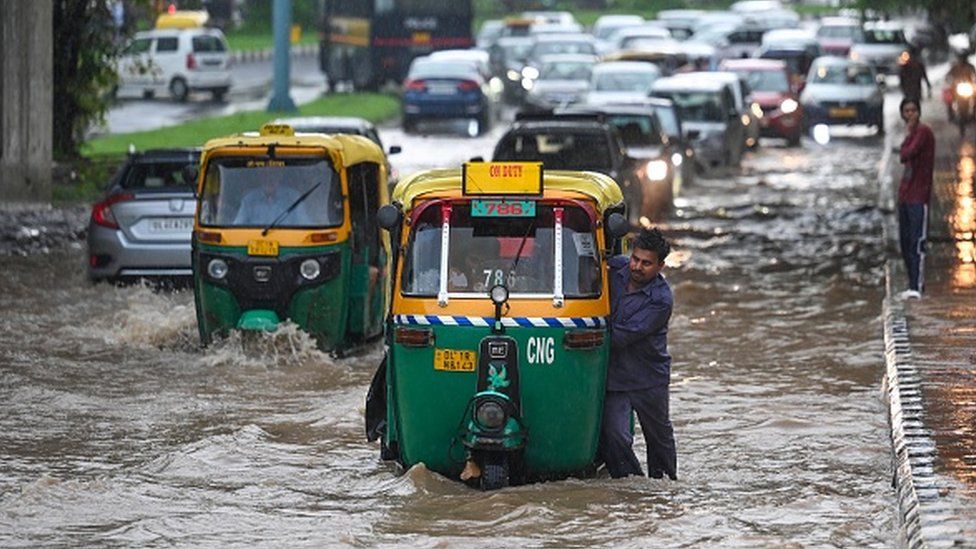
The situation demands utmost caution from the public, and residents in the affected areas are being urged to exercise extreme care and avoid venturing near the overflowing river. As the water level remains above the danger mark, it is essential for people to stay informed through official updates and adhere to any evacuation orders issued by the authorities.
The rising water level of the Yamuna has also raised concerns about potential damage to properties and infrastructure in the affected regions. The local administration is working closely with disaster response teams to assess and address any damages and provide timely assistance to those in need.
While the situation remains challenging, the efforts of the authorities are focused on minimizing the impact of the flooding and ensuring the safety and well-being of the residents. The continuous monitoring of the water level and weather conditions is crucial in order to anticipate any further developments and take prompt action accordingly.
The residents of Delhi and neighboring regions are urged to remain vigilant and cooperate with the authorities during this critical period. Public safety remains the top priority, and all necessary resources are being mobilized to respond to any emergencies or rescue operations that may arise due to the flooding.
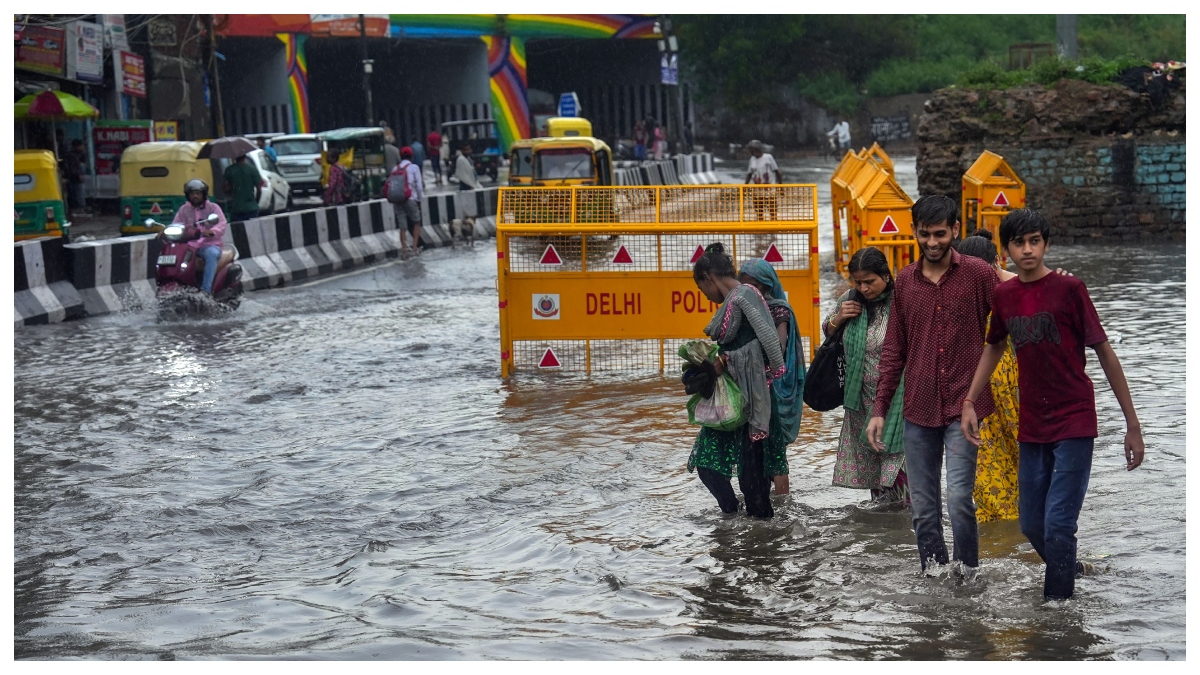
In addition to the local response, the central government is also keeping a close watch on the situation, providing necessary assistance, and coordinating relief efforts with the state authorities. The combined efforts of all stakeholders are essential in mitigating the impact of the floods and facilitating a swift recovery process once the situation stabilizes.
The situation highlights the need for preparedness and resilience in the face of natural disasters and
extreme weather events. Adequate measures for flood management and disaster response are critical in safeguarding lives and properties during such calamities. The lessons learned from this experience will serve as valuable insights for future disaster management strategies in the region.
As the situation unfolds, the authorities are committed to providing regular updates and ensuring transparent communication with the public. By staying informed and cooperating with the guidelines issued by the government, the residents can play a crucial role in ensuring their safety and the well-being of their communities during this challenging time.

